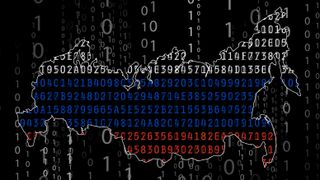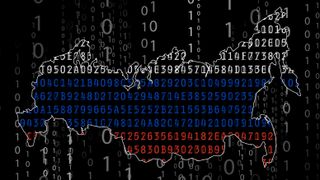YouTube must protect free speech in Russia and “take clear and decisive action” against authorities blocking orders.
This is the message that over 20 local and international civil society organizations shared via an open letter on Monday, May 28, 2024 (see tweet below). This comes amid a worrying spike in censorship across the platform, with the Russian censor body Roskomnadzor targeting several human rights YouTube channels and their content.
While the best VPN services may still help Russians bypass some restrictions, YouTube’s geoblocking policy and Russian law make this circumvention software less reliable, experts told me. This is why the signatories urge YouTube and its parent company Google to challenge the Roskomnadzor’s requests that go against international human rights standards with all available legal means.
“We look forward to your consideration of this issue and are committed to dialogue and collaboration to find solutions that benefit the entire YouTube community,” wrote the organizations, which include Access Now, Roskomsvoboda, and Reporters Without Borders (RSF) among others.
RSF, @accessnow and several organisations urge @Youtube not to help #Russia censor independent media channels threatened with blocking by the platform for non-compliance with obligations imposed by their iniquitous status as foreign agents.https://t.co/1hBIUoWETZMay 28, 2024
The stakes are especially high considering that, as Natalia Krapiva, Senior Tech Legal Counsel at Access Now, put it, YouTube is one of the most influential platforms for independent information in Eastern Europe and Central Asia. This means, she argues, that Google has “a moral duty to resist unjust laws that make it complicit in human rights violations.”
It looks like the Big Tech giant is failing to fulfill this moral duty, though. Commenting on this, Sarkis Darbinyan, cyber lawyer and Head of Roskomvosvoboda’s legal practice, describes YouTube’s behavior in Russia as duplicitous.
The Google-owned company refused to do business in the country and closed down its Moscow office. On the other hand, though, it is still obeying Russian censors’ orders.
“Helping Roskomnadzor to silence anti-war voices directed to Russians, and to promote censorship in the country, seems the height of hypocrisy given the values that the company itself demonstrates and defends,” Darbinyan told me. “We’d like to believe they just haven’t figured it out yet—and that is why we are asking the giant to hear us.”
YouTube censorship in Russia is on the rise
Let’s look at some data. Since February 2024, YouTube has blocked several videos about military service evasion in Russia and anti-war sentiments, including content from the human rights channels “Dozor in Volgograd” (Watch in Volgograd) and “Shkola Prizivnika” (Conscript school). Other human rights channels, including those of Roskomsvoboda and OVD-Info (two of the signatories), have also been notified of blocking threats.
These incidents have been intensifying lately because, Darbinyan told me, Russian legislators have significantly expanded the list of prohibited content over the last couple of years.
Russia VPN services came on the radar as well. Starting in March, a new law criminalizes the spread of information about ways to circumvent internet restrictions. This means that authorities have now the right to censor VPN tutorials and similar content.
Did you know?

On May 21, 2024, YouTube unblocked at least three of the aforementioned censored videos amid increasing pressure among Russian independent media. Despite this, experts argue that these videos “are still hidden from those who try to search for them in Russia.”
That’s because a VPN, short for virtual private network, can be used to bypass online geo-restrictions by spoofing your IP address. At the same time, it also encrypts internet connections to boost user anonymity online.
“[The new law’s] impact is already being felt,” Darbinyan told me, adding that this type of information keeps disappearing from the Russian Internet (RuNet) with many website administrators deleting everything themselves for fear of being blocked.
As mentioned, the Roskomsvoboda channel itself has also been hit by a request for removal from YouTube on such a video (see the video in Russian here). The team refused to comply and the video is still available at the time of writing.
All this is pretty serious. VPNs are crucial in Russia as they have the power to reconnect a growing splinter RuNet, Darbinyan explained. On one side, there’s the highly restricted web under the control of Roskomnadzor and state companies. On the other, the free internet that journalists and bloggers in exile are trying to build. VPNs act then as smaller bridges between the two webs.
This is the reason why the Kremlin has increasingly been trying to block their usage over the years. Darbinyan confirmed that Roskomnadzor continues its massive hunt for VPN services to this day, in fact.
“These bridges are getting smaller and less stable,” he told me, adding that also YouTube’s geoblocking policy is not very transparent and clear in this part either.
The role of Big Tech
So, what can YouTube, Google, and ultimately any foreign Big Tech firm do to make a difference here?
According to Darbinyan, YouTube should start by stopping the practice of shadow-blocking content at the Russian authorities’ request. This activity aims to exclude certain videos from the algorithm’s recommendations so that users cannot find them. He also believes that blocking orders coming from countries notorious for curbing citizens’ freedoms should be carefully analyzed for compliance with international law.
“Companies can no longer say it’s none of their business, that they are following the laws of the country and trying to be law-abiding,” said Darbinyan. “We dare to remind Big Tech that international soft law recommends that private companies should avoid contributing to adverse human rights impacts as part of their operations.
“And of course, it should be remembered that human rights impact assessment is the first thing Big Tech should think about when building their global policies.”
Services Marketplace – Listings, Bookings & Reviews
